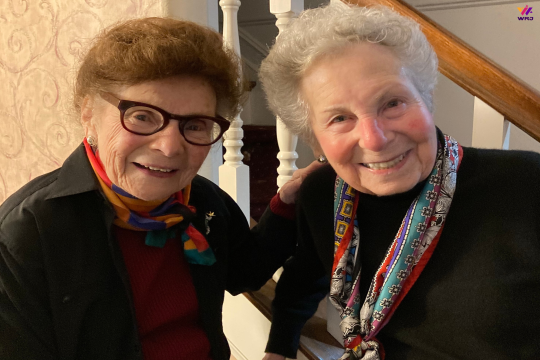
Thirty years ago, Congress first officially designated October as Domestic Violence Awareness Month. Domestic and sexual violence cut across lines of class, race, nationality, gender identity, and sexual orientation - and the Jewish community is not immune.
We care about the issue of domestic violence not only because it affects our community, but also because our tradition teaches us to. Domestic violence violates the Jewish belief in kavod ha’briyot, the fundamental dignity of every individual, and is an abhorrent violation of the sanctity and wholeness of the body and health of another person. Jewish tradition understands that personal injury, including sexual violence, has a multidimensional impact: “One who injures another person is liable on five counts: for the injury itself, for pain, for healing, for loss of time, and for embarrassment” (Bava Kamma 8:1). The repercussions of such violence reverberate far beyond the specific moment of the act.
Though domestic and sexual violence occurs in every community, some communities face distinct challenges in confronting it. Immigrant women may fear deportation for reporting domestic violence. Communities of color face systemic police brutality and may distrust involving law enforcement. And many in the LGBTQ community have had to push back against the myth that they do not need protection from abusive relationships.
For 25 years, the Violence Against Women Act (VAWA) has been one of the most effective means of addressing domestic violence in the United States, as well as dating violence, sexual assault, and stalking. VAWA has authorized $7 billion in grants to train law enforcement, prosecutors, and judges to provide essential services for victims and survivors, such as shelters, and to introduce and maintain rape crisis centers and prevention programming.
But Congress failed to reauthorize VAWA in April. While the law itself remains intact, reauthorization has served as an essential mechanism for advocates to revise and improve the law as we learn more about how to address domestic violence.
Earlier this year, the House passed the bipartisan Violence Against Women Reauthorization Act of 2019 (H.R. 1585), also known as VAWA 2019. The bill includes several important improvements:
- Expansion of tribal jurisdiction, allowing tribal prosecutors to pursue sexual violence, stalking, trafficking, and child abuse perpetrated by non-tribal members on tribal land.
- According to a NIJ study, 84.3 percent of Native American and Alaska Native women experience violence over their lifetime, mostly at the hands of non-Native perpetrators. Native women are 20 percent more likely than white non-Hispanic women to experience gender-based violence in their life.
- Closing the “boyfriend loophole”
- While current law prohibits domestic abusers from owning guns, dating partners who never lived together or had children together are exempt. VAWA 2019 would expand the definition of “intimate partner” to include “a dating partner or former dating partner” and prevent anyone convicted of stalking from purchasing or possessing a gun. Guns make intimate partner abuse significantly more deadly, regardless of whether a couple is married or not.
- Employment protections for victims of sexual harassment and survivors of domestic violence, sexual assault, or stalking
- VAWA 2019 would ensure that victims in every state have access to unemployment insurance if they lose their job due to their assault, violence or harassment, as well as launch a campaign to inform victims and survivors about federal programs they have access to, such as paid and unpaid sick or safe leave. Economic flexibility makes it easier for survivors to escape abusive situations.
These are just a few of the many life-saving new provisions added to the bipartisan VAWA passed by the House. Unfortunately, the Senate still has not introduced a VAWA reauthorization bill, leaving survivors without access to these key improvements.
We need your help. Urge your Senators to support a reauthorization of VAWA that includes these important provisions.
Related Posts

Celebrating 100 Years: A Journey Through Time
Celebrating the Mothers of Israel: A Women’s Seder


